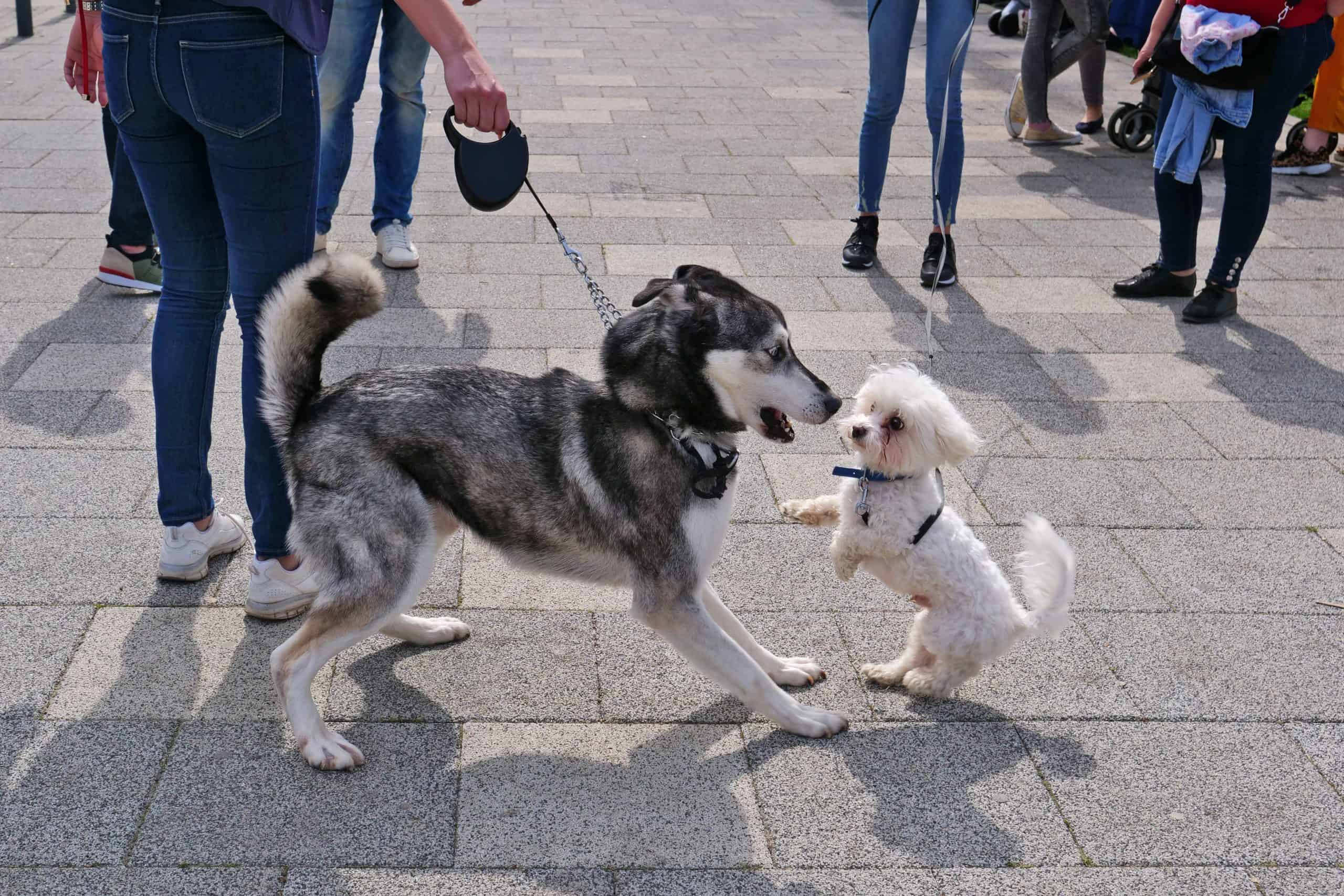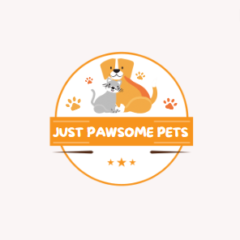Why You Should Respect The Lead! An Interview With Zoe Blake
By admin / March 14, 2022 / No Comments / Pet Dogs
Respect the Lead is an incredibly important part of dog ownership and walking a dog, professionally or otherwise.
A friend of mine, the phenomenal Zoe Blake is a veterinary nurse in the UK! And she launched a phenomenally successful campaign that you may have heard of called “Respect The Lead”.
Here’s some insight into the campaign and why everyone should be just a little bit more considerate.
As a trainer who doesn’t shy away from some of the less sociable dogs, I totally understand my dog parents frustrations when they lose progress because of someone’s dog is out of their control.
That’s because I don’t take risks with my dogs, I refuse to let a dog off lead if I can’t rely on their recall, or if I can’t rely on their temperament. But, having an “oh, don’t worry my dog is friendly“ come bounding over is where my heart starts sinking…
Most dog owners don’t know that their dog’s lack of recall amounts to (legally speaking) an “Out of Control Dog” label. This can have serious consequences if an injury is sustained, by dog or human.
All of this leads to me being a massive advocate of anything that helps all owners to recognise a dog that needs a little space. Having been pointed in the direction of the Respect the Lead campaign, I love what it stands for and feel it should be shared with everyone!

Fights like this are totally able to be avoided, something that Zoe Blake from Respect the Lead totally understands. It’s something I’ve experienced first hand, what about you?
So, Zoe, for those who don’t know, how would you summarise the Respect the Lead campaign?
The Respect The Lead campaign is trying to raise awareness that when a dog is being walked on the lead there could be many reasons for this. The dog may be nervous, post-surgery, elderly, in training or a new rescue. When a dog is on a lead we take away its ability to flee and escape any danger it may encounter.
So, if another dog regardless of how sociable or friendly it is comes charging over, the dog on the lead may encounter many different emotions such as fear, frustration, anxiety or excitability. This may then lead to a reaction by the on lead dog which could lead to potential problems occurring which may cause injury to dog and human.
The Respect the Lead campaign highlights the fact that even the friendliest dog may become hostile or defensive when on the lead. This can also be the same when you have lead to lead greetings.
Dogs do need their space, don’t they? It’s definitely something we experience a lot. Why did you found the campaign?
This is something I feel quite passionate about for a number of reasons but was really highlighted over the New Year holidays when I got involved in an incident at a local beauty spot. We had been on a family walk with my own dog (who sadly spends a lot of time on a lead as he chases deer) and on heading back to the car I heard a dog fight quite near to us.
My natural instinct kicked in and I ran over to the incident as people were screaming for help. Luckily as I got there the dogs had stopped and I checked them over for any injuries.
Fortunately, both dogs were ok however sadly one of the owners had been bitten quite badly during the process and needed hospital attention. The incident had occurred after an on lead dog was approached by a very bouncy exuberant dog that persisted to try and jump all over it. The owners kept shouting for the dog to be taken away as there dog that was on the lead could be reactive.
Which sadly on this occasion there warnings rang true … this could have been prevented by the off lead dogs owners acknowledging the request and taking the dog away.
I had actually had the same thing happen to me on the walk with the same dog on several occasions bounding up to my dog. So I can imagine how this reactive dog would have felt.
My latest rescue dog came off the streets of Croatia and I had to put a lot of work into training him when he first arrived. He was very reactive on the lead and would lunge at nearly every dog he saw. He was lovely and sociable off lead but as soon as the lead went on he changed. It took a lot of time and persistence but he is so much better now.
I am mindful and read my walks watching ahead and so if I sense he will get dashed at when he is on the lead I put my training into place. This works well for my dog but I worry about all the other dogs out there that have their own issues and maybe the owners haven’t been lucky enough to get training help. I felt I wanted to speak out for these owners.
During my job as a veterinary nurse I get to see many dogs that have sadly been in dog fights. Many of these can be from on-lead/off lead altercations which unfortunately may have resulted in injury to the owner too.
This is why I started my Respect The Lead campaign.

I know you work as a veterinary nurse, so you must see a number of dog fight-related injuries; do you think that this would avoid a lot of injuries between dogs and to humans?
I have been a veterinary nurse for 27 years now and I have seen plenty of dogs and owners who have unfortunately got injured from a dog fight. When we are administering our first aid the what’s, where’s and whys aren’t really discussed- however it would be interesting to collect data to see how many had arisen from a dog being on a lead. Maybe that’s a project for the future……..Anything that can help avoid dog fights will drastically reduce the numbers of injuries to dogs and their owners.
I wonder also! I know from my experience it’s that short-sightedness that causes avoidable injuries. Out of curiosity…
Why do you think this has become such a pronounced issue recently? Would you think this is a new issue, or is it just more noticeable because of the increasing dog population?
The UK is known for being a nation of animal lovers. We pick up newspapers or read blogs telling us that owning a pet is healthy and is especially good for children learning about responsibility. I definitely feel that more families are getting dogs especially since the explosion of dog walkers available as this gives the working family an option when they are out at work all day.
I think it is vital that anyone acquiring a dog does their homework first as to what dog would be suitable for their family situation. Read up about the breeds and the requirements that go alongside them. They need to seek ongoing training/behaviour support, a 6 week introduction course is often not enough, we have to be persistent, just because you have left school doesn’t mean the learning is over.
I feel that people are maybe not aware of what a dog on a lead can mean to them and how it can cause problems when approached by another.
I think I agree, a good puppy course or dog ownership is definitely something everyone should attend! Would you like to see legislation being passed to support this?
I would love to see the posters displayed in all public places that are accessed by dog walkers. All veterinary surgeons, dog trainers and dog charities would be good as supporters. There has been talk of making allocated walking areas that are for off lead or on lead dogs but I think that would be hard to monitor.
The ‘Yellow Dog project’ do an amazing job of allowing owners to identify their dogs as nervous etc. However, across a field for instance you may not see the lead/collar/bandana colour. You should just think ‘dog on a lead’ let’s recall mine back to avoid a situation from occurring.
The Metropolitan police run a Local Environmental Awareness on Dogs initiative and the officer in charge of this carries my Respect The Lead resources when attending events in the community.
I’d love to hear more about this from the Met! That would definitely be interesting to know and maybe it’s something we could encourage nationwide.

You’ve had phenomenal take up so far on the Campaign; for those who want to show their support, how can they get behind the campaign?
Thank you, yes I was astounded at the interest the campaign received when I started it. It travelled to all 4 corners of the globe. I’ve had requests for posters from Australia to Texas, Wales to Spain. It is amazing how many people are experiencing these avoidable situations on a day to day basis.
I have a webpage www.respectthelead.com where you can download my posters. I try and keep updates going on social media too …look me up @zoethefriendlypetnurse, I would love to hear from you.
Thank you so much for your time Zoe! I think I can say Rebarkable totally supports your campaign!
How does that make you feel?
Maybe for 2022, we can all try and be a little more considerate of a dog on lead!
The “It’s okay! My Dog is Friendly!” is really not an excuse; it’s asking for trouble, and sure, your dog may have been lucky so far, but one day he won’t be.
To me? Our primary responsibility to our animals is to keep them safe; why should the park be any different?
If you need guidance on recall with your dog, or any other training issue, why not book a bark day? Where we can discuss all your training needs!
Author, Ali Smith
Ali Smith is the Positive Puppy Expert, dog trainer and is the founder of Rebarkable. She is passionate about helping puppy parents get things right, right from the start. To help create a puppy capable of being a confident and adaptable family member and keep puppies out of shelters.
Ali has won multiple awards for her dog training, and has had her blog (this blog!) rated as 2021 & 2022 worlds’ best pet blog!
Link to Rebarkable
